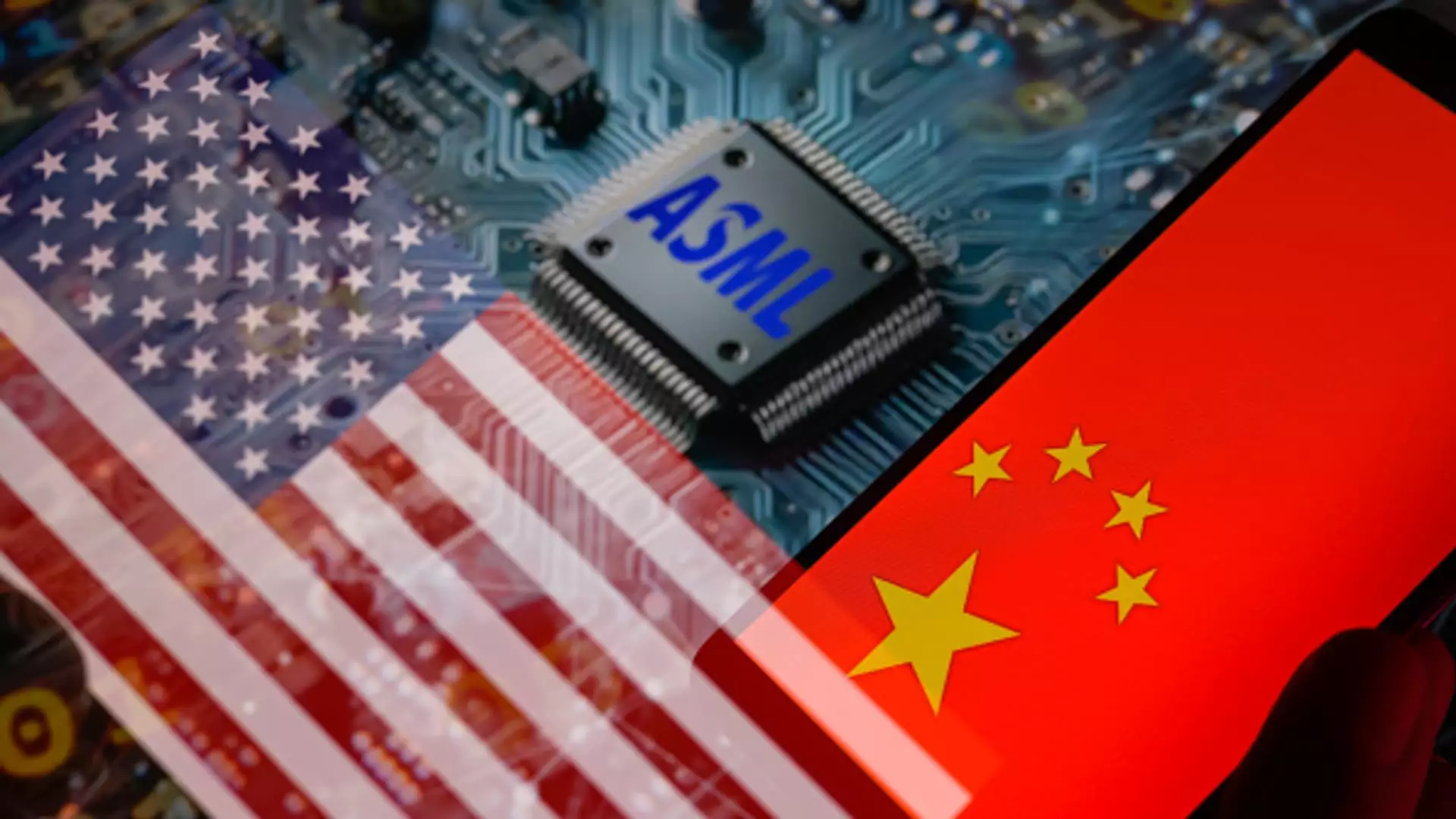On a notable Thursday, shares of significant semiconductor equipment companies experienced a surge following reports that the U.S. is contemplating a new set of sanctions targeting China’s chip industry. Unlike previous proposals that were deemed more severe, these upcoming measures seem to be less aggressive, thus sparking optimism among investors. Companies like ASML and Tokyo Electron saw increases of 3.6% and over 6% in their early trading sessions, respectively. This development is part of a broader strategic maneuver by the U.S. in its ongoing technological rivalry with China.
The new proposals under consideration by Washington aim to further curtail the sale of semiconductor equipment and artificial intelligence memory chips to China. However, initial reports suggest that these measures might not be as far-reaching as had been anticipated earlier. For instance, the U.S. Commerce Department appears to be reconsidering the number of Chinese suppliers listed on its export blacklist, specifically the Entity List. Notably, ChangXin Memory Technologies, a significant player in the memory chip sector, has been identified as one firm that will not be included. This exclusion raises potential implications for ASML’s sales forecasts and overall market dynamics.
In light of these developments, market analysts, particularly from Jefferies, have adjusted their outlook on ASML. The firm had previously projected a 30% decline in revenue from its operations in China for the coming year. However, the decision to spare ChangXin from the blacklist could suggest a less severe impact on ASML’s financial performance, leading analysts to predict a more favorable outcome for its sales in the Chinese market. This renewed optimism is a stark contrast to the prevailing concern regarding potential market downturns instigated by stricter export controls.
ASML finds itself at a pivotal moment within the global semiconductor ecosystem. The Netherlands-based firm manufactures critical machinery that chip manufacturers need to produce cutting-edge semiconductors. The restrictions previously implemented by both the Dutch and U.S. governments have limited ASML’s ability to export even its less advanced machinery to China. This situation creates a paradox; while stringent regulations hinder their selling capabilities, the potential easing of some restrictions can lead to a rebound in market confidence among foreign equipment suppliers.
The trajectory of this situation is likely to have widespread implications for both international trade and technological advancement in the semiconductor arena. Should the U.S. implement the anticipated sanctions while avoiding excessively restrictive measures, it may present new opportunities for ASML and its counterparts that supply equipment to manufacturing plants, or “fabs.” As foreign semiconductor companies recalibrate their strategies in response to the evolving landscape, it becomes crucial to monitor how these developments will impact overall market health and competition among global players. The ongoing technological arms race between the U.S. and China, particularly in the semiconductor sector, underscores the dynamics at play in this critical industry.

